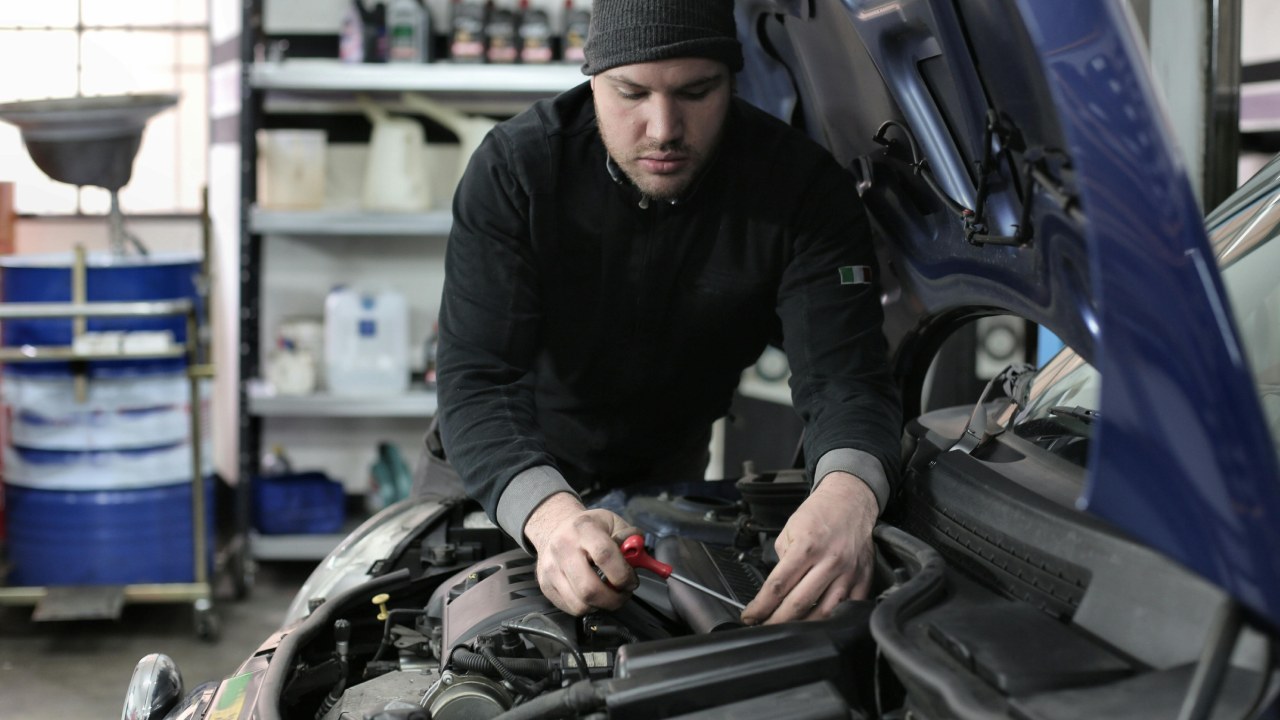A car is more than just a vehicle; it’s a trusty companion that gets you where you need to be. But how do you ensure that your car remains reliable and efficient over time? The answer lies in a regular maintenance schedule. For car owners, DIY enthusiasts, and vehicle maintenance beginners, keeping your car running smoothly is crucial. This post will guide you through the essentials of creating and maintaining a routine maintenance schedule for your vehicle.
The Basics of Routine Maintenance
Maintaining your car isn’t just about fixing problems as they arise; it’s about preventing them in the first place. A routine maintenance schedule should include oil changes, tire rotations, and fluid checks. These basic tasks keep your engine lubricated, your tires even, and your car’s systems running efficiently.
Oil changes are critical because they keep the engine’s moving parts slick and prevent overheating. Depending on your car’s make and model, you should change the oil every 3,000 to 5,000 miles. Tire rotations ensure even wear and extend the life of your tires, recommended every 6,000 to 8,000 miles. Regular fluid checks, including brake fluid, coolant, and transmission fluid, help maintain your car’s performance. Checking these fluids monthly can prevent costly breakdowns down the road.
Adhering to a routine maintenance schedule isn’t just smart—it’s essential for optimal vehicle health. Skipping these tasks might save time in the short run, but it can lead to bigger, more expensive problems down the road.
Spotting Signs Your Car Needs Immediate Attention
Even with regular maintenance, issues can arise. Recognizing these signs early can prevent further damage. Strange noises, like grinding or squealing, often indicate issues with brakes or belts. Unusual vibrations can signal tire alignment problems or suspension issues. Warning lights on your dashboard shouldn’t be ignored, as they often indicate deeper problems that need professional attention.
Addressing problems early can save you from more extensive repairs. For instance, ignoring a small oil leak might lead to engine damage, requiring a costly repair. Pay attention to any changes in how your car feels or sounds to prevent minor issues from becoming major headaches.
DIY vs. Professional Maintenance
While some maintenance tasks are perfect for DIY enthusiasts, others are best left to professionals. Changing air filters, windshield wipers, and oil are simple tasks you can do yourself with the right tools and a bit of research. However, tasks like brake repairs, engine diagnostics, and electrical work require specialized knowledge and equipment.
For the DIY tasks, ensure you have the right tools, such as a quality wrench set and a jack. Resources like online tutorials and repair manuals can guide you through the process. Safety is crucial, so always work on a stable surface and follow safety protocols.
For complex issues, trust the professionals. They have the experience and tools to diagnose and fix problems accurately, saving you time and potential headaches.
Crafting a Personalized Maintenance Schedule
Every car is different, and so is every driver. Creating a personalized maintenance schedule requires considering factors like your vehicle’s make, model, age, and your driving habits. For instance, if you frequently drive in stop-and-go traffic, your car might need more frequent oil changes.
Tools and apps can help you track and manage your maintenance schedule. Apps like Car Maintenance Reminder and Fuelly provide reminders and track your car’s history, making it easier to stay on top of essential tasks.
Adapting your schedule to your needs ensures your car gets the care it deserves, enhancing its performance and longevity.
The Benefits of a Consistent Maintenance Schedule
A consistent maintenance schedule offers numerous benefits, including improved safety, reliability, and longevity of your vehicle. Regular maintenance checks can identify potential safety hazards, ensuring your car is in peak condition. Well-maintained vehicles are less likely to break down unexpectedly, providing peace of mind on the road.
Consistent maintenance also contributes to cost savings. Regularly maintained cars are more fuel-efficient and experience fewer major breakdowns, ultimately saving money in repairs and fuel costs. It extends the life of your vehicle, maximizing your investment.
Time to Take Action
Regular maintenance is not just a good idea—it’s a necessity for car owners. By following a routine maintenance schedule, you can keep your car running smoothly, extend its life, and enjoy peace of mind on every drive. We encourage you to start or revise your maintenance schedule today.
Share this post with other car owners so they, too, can benefit from a well-maintained vehicle. Remember, a little time and effort now can save you a lot of time, money, and stress down the road. Your car will thank you for it!


